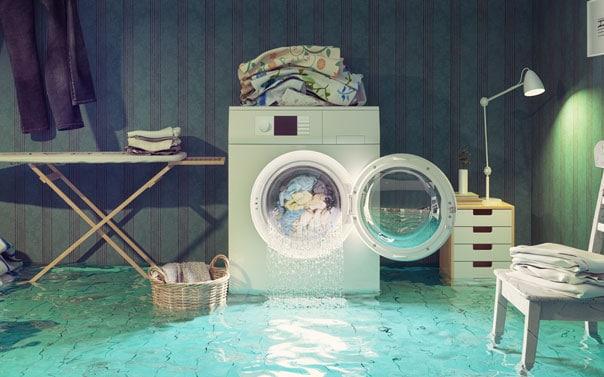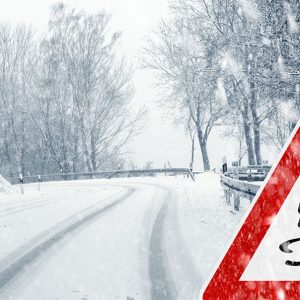1. Sudden and accidental flooding.
This coverage is for overflowing water from home systems or appliances, including plumbing, heating or air conditioning units, an automatic fire sprinkler system, or certain household appliances. For instance, if your hot water heater suddenly leaks and floods the recreation room in your basement, it would cover the water damage to your furniture and carpeting or flooring. There may be certain exceptions depending on the cause of the flooding, so be sure to discuss the details of this peril with your insurance agent ahead of time. Typically, your homeowners policy would not cover floods resulting from an event that occurs naturally outside your home, such as an overflowing river, mudslide or storm surge near the coast. To cover such events, you must purchase separate flood insurance.
2. Fire.
According to the National Fire Protection Association, nearly 1.5 million fires were reported in the U.S. in 2015, resulting in property damage of $14.3 billion. Cooking is the leading cause of home fires, but heating equipment, electrical cords and wiring, and candles can also be culprits. Wildfires are another potential danger for U.S. residents living in dry climates, and as the temperatures heat up you should be prepared for this very real danger. Homeowners insurance covers your property if it’s damaged in a fire, but you should always be sure to never leave stoves or candles unattended while lit.
3. Theft.
There were nearly 1 million residential burglaries reported by the FBI during 2015, averaging $2,296 per offense in property losses. Most burglaries take place between 10 a.m. hours. and 3 p.m. when most people are at work or school. Be sure to keep all windows and doors locked, even if they’re on a second floor –you don’t want to make it easy for thieves to access your belongings. Also, a home security system is a good deterrent and can qualify you for an insurance discount for homeowners. It may even cover your stolen property as you travel anywhere in the world. Check in with your agent on an annual basis to ensure you maintain enough coverage to protect against possible losses to your ever-changing home inventory.
4. Objects falling from the sky.
Imagine that you’re home alone, watching your favorite Netflix show when you hear a loud crash in the next room suddenly. You will discover remains of a defunct satellite landed in your kitchen when you go to examine the cause of the ruckus. The likelihood of this, a meteorite or other space debris hitting your home isn’t very high, but your insurance covers it if it happens.
5. Vandalism.
Vandalism acts often occur under night cover. For instance, a group of unruly adolescents looking to create some Halloween mischief throws eggs and pumpkins at home, breaking a window in the process. Or you wake up to find a spray paint covered garage door. These types of situations are covered in your homeowners insurance policy under the vandalism hazard. If your home is vandalized, be sure to submit a police report to assist with the process of claims. Installing surveillance cameras and floodlights are also good ways to prevent first-place occurrence.
You should also ensure that additional living costs are covered by your homeowners policy. If your home becomes uninhabitable due to damage from a covered loss, your homeowners insurance may reimburse you for the expenses you incur while you’re living elsewhere. This coverage helps you maintain your normal standard of living while your home is being rebuilt or repaired, and includes hotel accommodations, meals and more. Be sure to keep all of your receipts for your adjuster.
Is there anything homeowners insurance doesn’t cover?
Homeowners insurance helps ease the process of getting back to normal after damage from an unexpected or unforeseen event. However, be aware the following natural events are not included in your coverage.
- Earthquakes
- Mudslides
- Landslides
- Flood damage caused by storms
Speak to your local insurance agent to learn how you can get coverage for these.
If you happen to be a victim of any of these scenarios, follow these steps when filing a homeowners insurance claim:
When filing a claim
- Contact your insurance provider immediately to report a loss.
- Be prepared to provide your policy number.
- Do not remove debris or damaged property that may be related to your claim.
Steps immediately after filing a claim
- Prepare a detailed inventory of destroyed or damaged property.
- Gather photos or videotapes of your home and possessions for your insurance adjuster, if these are available.
Steps while the claim is processed
- Keep copies of communications between you and your adjuster.
- Keep records and receipts for additional living expenses that were incurred if you were forced to leave your home and provide copies to your adjuster.1




